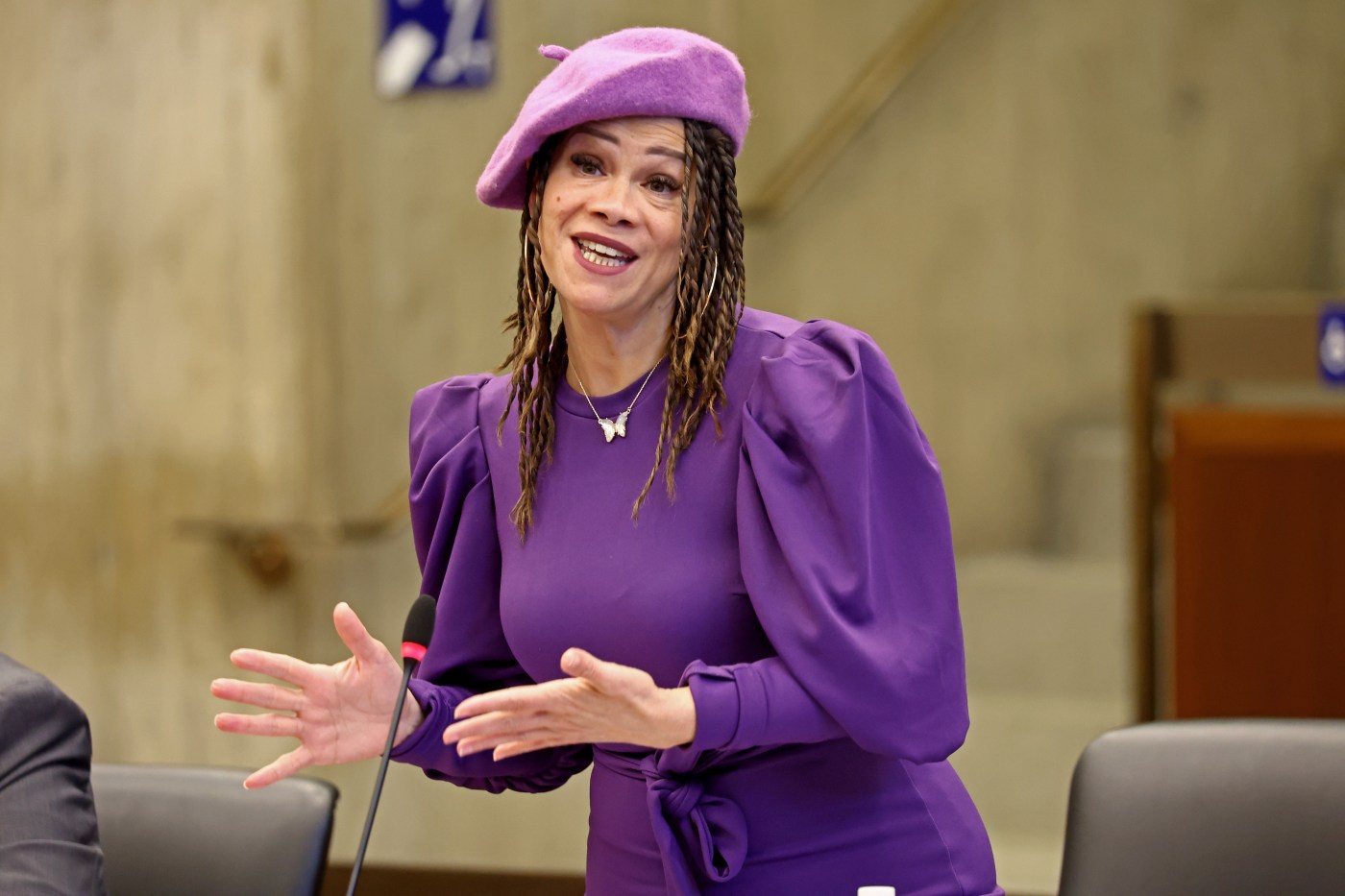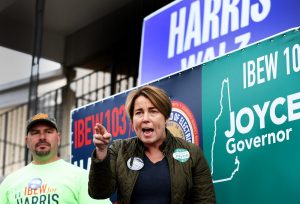
Boston city councilor blasts Mayor Wu for early opposition to elected School Committee bill
Boston City Councilor Julia Mejia has filed legislation that would move the School Committee from an appointed to elected body, but Mayor Michelle Wu, who vetoed a similar measure last year, is already indicating that she plans to block it.
A Monday statement from the mayor’s office reiterating Wu’s prior opposition to an “overhaul of the Boston School Committee selection process” prompted a sharp retort from Mejia, who plans to introduce a home rule petition that would shake up the committee, at the Wednesday City Council meeting.
“The administration’s argument to veto was to give Mayor Wu and Superintendent Skipper a chance — and they had it,” Mejia said in a statement. “Now, it’s time to give the coalition to establish an elected School Committee and Boston residents an opportunity to restore democratic and accountable governance of (Boston Public Schools).
“The residents of Boston should have the right to elect their own representatives to make decisions about BPS, just like every other municipal district in Massachusetts,” Mejia added.
Mejia’s home rule petition seeks to change the School Committee, which includes seven voting members appointed by the mayor, to a 13-member elected body that would be modeled after today’s City Council, with nine district members representing the same districts as councilors, and four at-large members.
The Council narrowly passed a similar measure in February 2023, via a 7-5-1 vote, but it was quickly vetoed by Wu, dealing council progressives a blow, and blocking the bill from moving onto the Legislature for consideration.
Wu appears poised to take a similar tack this year, should the new legislation come before her desk, according to a statement released Monday by her office.
“After many years of leadership transitions, as well as disruptions from the pandemic and growing needs through our recovery, Boston Public Schools needs stability to continue the progress underway on long-term structural issues under Superintendent Skipper, Mayor Wu and the administration,” a Wu spokesperson said in a statement. “The mayor does not support an overhaul of the Boston School Committee selection process at this time.”
“The administration’s focus,” the Wu spokesperson said, “continues to be on partnering with school communities and citywide stakeholders to strengthen academic excellence, college and career pathways, multilingual and inclusion learning, and needed facilities improvements so our students and school communities have the opportunities to thrive and succeed.”
While Wu has maintained her opposition to an all-elected body, she said she supported a hybrid elected-appointed committee when she was running for mayor.
Lisa Green, chair of the Bostonians for an Elected School Committee, joined Mejia in slamming the statement issued Monday by the mayor’s office.
“With all due respect to the mayor, dismissing the proposed change as mere administrative shuffling obscures the main defect of Boston’s system of governance and ignores the frustration of the 99,000 voters who demanded their right to vote for School Committee restored,” Green said in a statement.
“This isn’t ‘an overhaul of the Boston School Committee selection process.’ It’s an end to mayoral control of Boston’s schools — a political power grab that’s been destabilizing BPS since 1991,” she said.
In 1991, the City of Boston passed a home rule petition that was codified into state law and led to the first appointed School Committee, and the consolidation of the powers of the School Committee into the office of the mayor, per Mejia’s filing.
Related Articles
Boston’s business tax hike plan advances to State House for consideration
Boston election officials: Last minute voting instructions for election day, improvements to vote counting
Two Boston city councilors express concerns with Council president’s ‘conduct in meetings’
MassLandlords sues Boston, says city withheld public records to protect Mayor Wu, hide unlawful rent control lobbying
Mayor Wu looks to ink long-term PILOT tax payments from ‘Big 9’ institutions first
Every municipality in Massachusetts, except for Boston, elects its School Committee. Boston voters by nearly 80% voted in favor of an elected school committee in a non-binding 2021 ballot question, per Mejia’s home rule petition.
The new petition seeks a phased-in approach to committee reorganization, “to provide continuity and stagger elections,” Mejia said. There would be a two-year period where there would be nine elected members and four appointed, with the committee transitioning to fully elected after the following election, she said.
The Council’s last push for an elected school committee was opposed by four moderate councilors and one progressive.
The new petition will be introduced a day before a hearing, co-sponsored by Councilors Ed Flynn, Erin Murphy and Mejia, is held on the transportation challenges that have been plaguing the beginning of this school year at BPS.
The Boston Public Schools narrowly avoided state receivership in 2022 by signing an agreement to make and monitor changes, including around transportation. This year’s bus delays led to Flynn and Murphy calling for state intervention.
Mayor Michelle Wu (Photo By Matt Stone/Boston Herald, File)


